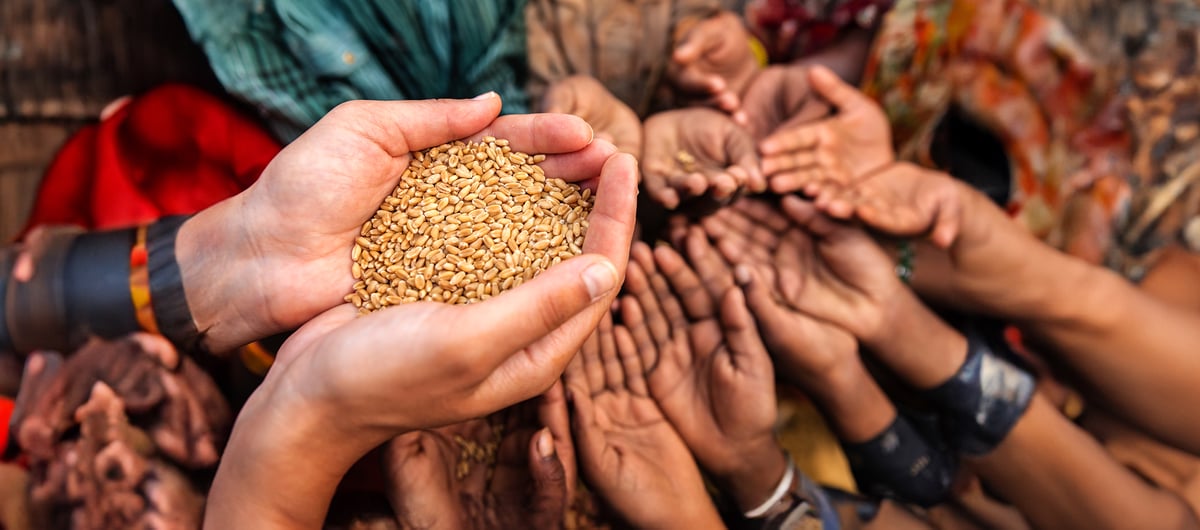
Winds of Change: The Evolution of Philanthropy in Indian Diaspora Family Offices
With its deeply religious roots, charity and philanthropy are well-established practices in India. In 2023, private giving in the country grew twice as fast as the previous five years to reach $15 billion, driven primarily by family philanthropy and donations from ultra-high-net-worth individuals (UHNWI).[1]
With values learned at home now being shared abroad, Indians in the diaspora are further estimated to contribute more than $1.5 billion every year globally.[2] This trend for giving by the UHNWI among the Indian diaspora is set to grow, according to a new publication by DBS Private Bank and Bloomberg Media Studios, which shows that as family offices become more popular among the diaspora, so too does philanthropy.
“Some people call philanthropy CSR. We don't do CSR, which we consider cosmetic social responsibility. We'd rather do the real stuff,” Vimal Shah, chairperson of Bidco Africa, says of his family’s evolving approach to philanthropy. “Creating an impact on people, on lives, and focusing on doing good comes from our Jain philosophy.”

Regardless of where they have settled, attitudes towards family philanthropy among the Indian diaspora are deeply ingrained in tradition, and often inherited from previous generations. Many Indian-origin philanthropists who live abroad say their philanthropic practices were seeded by their grandparents’ or parents’ legacies.
“It’s a part of the upbringing of the family, and it's also a part of the culture in India,” says Adeeb Ahamed, managing director of Abu Dhabi-based LuLu Financial Holdings.
“I've taken what I have seen from my grandfather, my own father, and, of course, how the [Indorama] companies operate,” adds Shruti Lohia Hora, the Singapore-based director of healthcare at Kindorama, and daughter of Indorama co-founder, Sri Prakesh Lohia. “So that led me to doing something of my own. I'm very grateful for the values that have been passed down from one generation to the next.”

While philanthropy remains central to Indian identity, the way it is practised among diaspora UHNW Indian families is evolving. The emergence of a younger, vocal generation is prompting family leaders to take a more democratic yet systematic approach to decision-making. Philanthropy is also increasingly being formalized as UHNW Indians in the diaspora opt to work through family offices that administer charitable priorities through trusts, foundations or CSR programs, rather than on a piecemeal basis.
The number of Indian family offices has grown rapidly from 45 to 300 since 2018, many of which are overseas.[3] Their flexible and agile structures enable families to be more responsive than larger foundations that are often answerable to more stakeholders. Family offices also provide much needed structure to how diaspora UHNW Indians give.
According to Ahamed, this “organized” approach to philanthropy helps ensure the preservation of the family’s values by providing a framework through which future generations can learn from the experiences of previous wealth holders and work on their own charitable priorities.
“Nowadays we get so many requests that it becomes difficult to evaluate what seems to be the most important thing. So it's prioritizing that, and understanding that instead of using our philanthropic capital in one go, if we can allocate it across several projects, the impact could be much larger,” he says.

Education and healthcare remain mainstays of private Indian philanthropy, but young UHNW Indian philanthropists living overseas are tackling these issues from new angles. Philanthropic support for mental health initiatives is on the rise, with programs like the Mariwala Health Initiative, founded by entrepreneur Raj Mariwala, which looks to increase access to mental health treatment in rural areas and for marginalized communities.[4] [5]

Gender, equality, diversity and inclusion (GEDI) and climate issues are also increasingly benefiting from Indian philanthropy, often due to programs initiated by younger or female UHNW members of the diaspora.[6] “I would notice that all these women were taking care of their families but not taking care of themselves. So that's where I came in,” Lohia says of her work with women and children in Kerala, India.
Many philanthropists, including Ahamed and the chairman of Prime Bank Africa, Rasik Kantaria, have also started to channel their philanthropy to skills-based programs rather than a conventional needs-based approach.[7] In this way, needy communities are equipped with the skills they need to uplift themselves and their families, creating momentum that can generate sustainable, systemic change in communities.
“When it comes to philanthropy, the end result is whether you are able to make an impact on something that is beyond profit. This is something that needs to build up an entire generation,” explains Ahamed.

More change is on the horizon as younger leaders begin to take over from their parents. Initiatives like collaborative philanthropy and digitalization are coming to the fore as Indian UHNWIs look to maximize their impact.[8] These factors are also helping to broaden the reach of philanthropy among the Indian diaspora, both in terms of geography and sector.
Rohet Tolani, managing director of Tolani Shipping, for example, focuses on educational philanthropy abroad, establishing professorships in American alma mater universities. The Lohia family, meanwhile, largely supports communities in its operating markets such as Nigeria and Indonesia.
Despite the shift, ties to home still run deep, and many UHNW Indian families remain focused on solving issues in India, alongside broader programs in the countries they reside or operate in. Ahamed, for example, continues to focus much of his philanthropic work in his native Kerala, despite being based in Abu Dhabi. “Regardless of my passport, I still have that deep-rooted connection to India,” he says.

